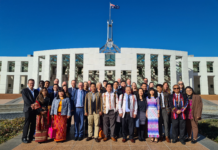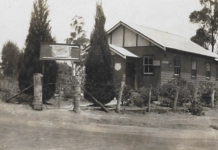
New millennium Christians are in possession of the most remarkable set of tools that believers have ever had access to, especially with evangelism in mind: the Internet.
I can only imagine how Johannes Gutenberg in 1439 would have salivated at the prospect of social media. He had just invented movable type printing and started the printing revolution widely regarded as the most important event of the modern era. This innovation allowed the printing of the Gutenberg Bible and access for people to their own Bible started becoming a reality.
This publishing revolution along with the sacrifices of other figures such as Wycliffe, Hus, Colet, Tyndale, Luther who worked tirelessly to put the Bible into the hands of everyday people in a language they could understand had tremendous implications for the spread of the Christian faith.
We now live in a new era of revolutionary development in publishing. The advent of the Internet and the capacity to self-publish has opened up never before seen opportunities for the Christian faith.
We are all self-publishers now. Whilst only a small minority will ever go to the trouble of authoring a blog, the mere possession of a social media account allows us to write and ‘publish’ our thoughts into the public realm. This reality should cause us to think strategically about the way in which engage online and the people who we engage with. A Christian with clear missional intent can use this new revolution strategically to great effect, communicating across barriers and boundaries not possible in previous generations.
How can we use the revolution of the Internet?
If you are keen to use your online engagement strategically the key questions to ask are: who is our primary target audience, and what is the nature of the content.
I observe three distinct ways in which Christians engage online:
1. Compartmentalised
You wouldn’t know from the content of some Christians that they were followers of Jesus. Their faith appears to have little relevance to their online behaviour, almost as if the Internet is a totally separate compartment of their lives. You tend to find out some surprising things about these people from their social media content! Often their content is a contradiction of what they purport to believe, or at best their faith simply doesn’t get a mention.
2. Christianised
Many Christians use social media to communicate with their own kind: people who share the same beliefs and lifestyles. Their social media content is full bore 100% Christian, aimed at an exclusively Christian audience.
3. Missional
These Christians use their social networks strategically to communicate primarily with people who do not share their faith, and much of their content is subsequently calibrated accordingly. They provide a window into a world that their primary target audience don’t live in and seek to engage them on issues of faith whilst also interacting about normal life, humour, etc.
 A classic example of compartamentalised way in which Christians can engage online using social media is found in a study by the ARC Centre of Excellence for Creative Industries and Innovation which showed how Christians are isolated on the extreme edge of the Australian Twittersphere talking almost exclusively amongst themselves.
A classic example of compartamentalised way in which Christians can engage online using social media is found in a study by the ARC Centre of Excellence for Creative Industries and Innovation which showed how Christians are isolated on the extreme edge of the Australian Twittersphere talking almost exclusively amongst themselves.
This underlines the lost missional opportunity of the modern digital revolution as far as the church is concerned.
We are Christ’s ambassadors (2 Cor 5:1) and a living letter (2 Cor 2:2) and this applies whenever we log on.
You will find some helpful links about how you and your church can engage with social media at http://www.crossoveronline.com.au/connectedchurch/
Measuring your social media interaction
If you want to analyse your Facebook activity you can use a helpful (and free) service from Wolfram Alpha (www.wolframalpha.com) to analyse the metrics of your Facebook account. It measures everything and then presents it to you in a range of graphic ways. Amongst other things it measures your most frequent word usage, average comments per post, the geographic location of your network, age and gender break down and it also constructs a word cloud from your most frequently used words.
The most revealing graphic is a diagram showing the various groupings in your network of friends and how they relate to each other. You can pick up from this diagram how sequestered away from the world (or otherwise) you are in terms of who you interact with most.
If you see yourself as a missional agent this should matter a great deal to you, and the analysis provides some helpful and accurate metrics to measure your effectiveness. The Internet can be a massive sinkhole of unproductive time, but it can also be an unprecedented tool to assist you in connecting strategically with potential followers of Jesus.



































